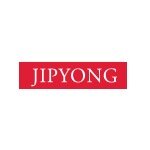Best Labor Law Lawyers in Jung-gu
Share your needs with us, get contacted by law firms.
Free. Takes 2 min.
List of the best lawyers in Jung-gu, South Korea
About Labor Law in Jung-gu, South Korea
Labor Law in Jung-gu, South Korea, is designed to safeguard the rights and responsibilities of workers and employers. It encompasses various laws and regulations related to employment standards, workplace safety, employee rights, and dispute resolution. The focus is on ensuring fair treatment, preventing discrimination, and maintaining harmonious labor relations. In Jung-gu, as part of South Korea, adherence to the Labor Standards Act and other pertinent legislation is mandatory for all businesses, ensuring a standard baseline of employee welfare and rights.
Why You May Need a Lawyer
There are several situations where individuals or businesses may need the expertise of a labor lawyer in Jung-gu. Some common scenarios include:
- Unfair dismissal or termination disputes
- Discrimination or harassment claims in the workplace
- Negotiation of employment contracts or severance packages
- Disputes over wages, working hours, or overtime pay
- Compliance with labor regulations for businesses
- Resolving disputes through mediation or in court
Legal advice can help clarify rights, navigate complex legal landscapes, and achieve fair outcomes.
Local Laws Overview
In Jung-gu, as part of Seoul, local labor laws adhere closely to national laws, with some nuances relevant to the busy urban work environment. Key aspects of labor law include:
- Labor Standards Act: Establishes minimum employment standards such as working hours, rest days, and termination procedures.
- Equal Employment Opportunity: Prohibits gender, age, and other forms of workplace discrimination.
- Wage Standards: Minimum wage laws and overtime regulations are strictly enforced.
- Occupational Health and Safety: Mandates safe working environments and preventative measures against workplace hazards.
- Employment Contracts: Legal requirements for written contracts and clear terms of employment are mandatory.
Frequently Asked Questions
What is the minimum wage in Jung-gu?
The minimum wage is set nationally and is adjusted annually. As of the latest updates, it is important to check the current rate set by the Ministry of Employment and Labor.
How are overtime wages calculated?
Overtime is typically paid at 1.5 times the regular hourly rate for hours worked beyond the standard 40-hour workweek or prescribed daily hours.
What constitutes unfair dismissal?
Unfair dismissal includes termination without just cause, arbitrary reasoning, or without following due process as outlined in an employment contract.
How can I address workplace discrimination?
Employees can file complaints with the Equal Employment Opportunity Commission, seek mediation, or pursue legal actions if discrimination occurs.
Is it mandatory to have a written employment contract?
Yes, South Korean labor law mandates that employers provide written contracts outlining key employment terms such as work conditions, wages, and job duties.
Can I refuse overtime work?
Employees can refuse overtime if it violates their contract terms or infringe on legally mandated rest periods unless otherwise regulated by specific agreements.
What are my rights during maternity leave?
Female employees are entitled to 90 days of maternity leave, with part of the period funded by employment insurance, ensuring job security during their absence.
What protections exist against workplace harassment?
Laws against harassment enforce strict penalties. Victims can report incidents to management or relevant authorities, and employers must address complaints seriously.
How can foreign workers protect their rights?
Foreign workers are entitled to the same rights under South Korean labor law. Language support services and dedicated helplines are available for assistance.
Are there specific laws for small businesses?
While all businesses must adhere to national labor laws, certain administrative exemptions or support can apply to small enterprises under specific conditions.
Additional Resources
Below are some helpful resources and organizations one might consider when seeking labor law assistance in Jung-gu:
- Ministry of Employment and Labor
- Korea Legal Aid Corporation
- Seoul Global Center for support for expatriates
- Local labor unions and advocacy groups, which often offer consultation services
- The Labor Relations Commission for mediation and arbitration support
Next Steps
If you need legal assistance in labor law, consider the following steps:
- Gather all relevant documents and evidence related to your situation.
- Consider contacting legal professionals or labor law attorneys specializing in employment issues.
- Make use of free consultation services offered by legal aid organizations or the Seoul Global Center if you are an expat.
- For immediate issues, such as workplace safety, contact the appropriate governmental bodies without delay.
- Stay informed about your rights and responsibilities through self-education and engaging with available resources.
Lawzana helps you find the best lawyers and law firms in Jung-gu through a curated and pre-screened list of qualified legal professionals. Our platform offers rankings and detailed profiles of attorneys and law firms, allowing you to compare based on practice areas, including Labor Law, experience, and client feedback.
Each profile includes a description of the firm's areas of practice, client reviews, team members and partners, year of establishment, spoken languages, office locations, contact information, social media presence, and any published articles or resources. Most firms on our platform speak English and are experienced in both local and international legal matters.
Get a quote from top-rated law firms in Jung-gu, South Korea — quickly, securely, and without unnecessary hassle.
Disclaimer:
The information provided on this page is for general informational purposes only and does not constitute legal advice. While we strive to ensure the accuracy and relevance of the content, legal information may change over time, and interpretations of the law can vary. You should always consult with a qualified legal professional for advice specific to your situation.
We disclaim all liability for actions taken or not taken based on the content of this page. If you believe any information is incorrect or outdated, please contact us, and we will review and update it where appropriate.








